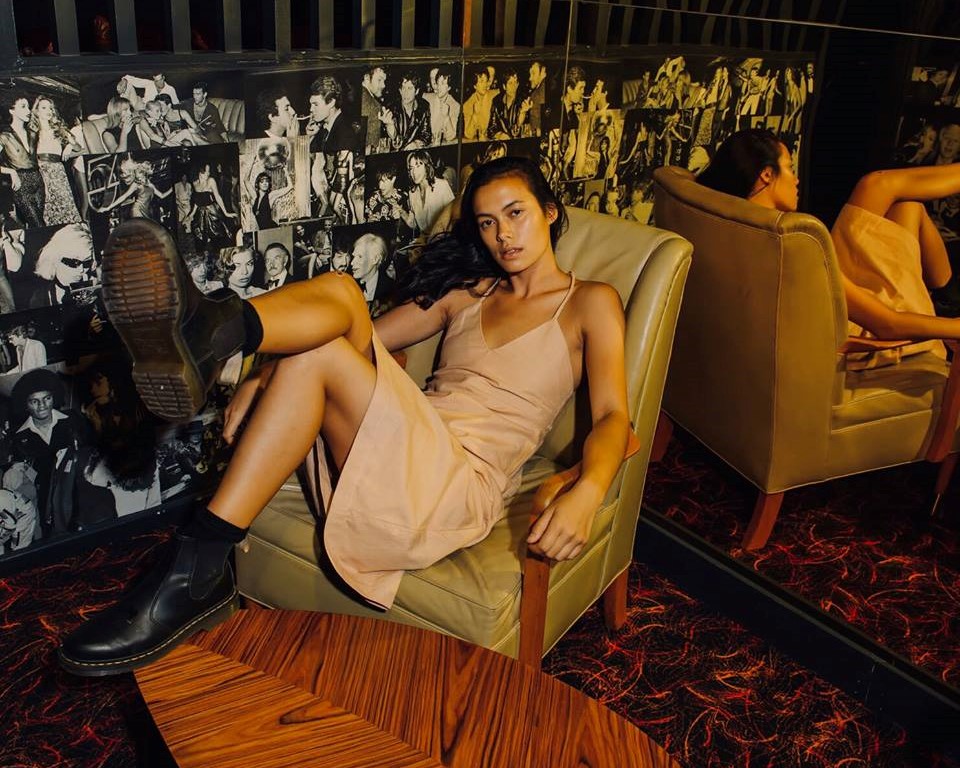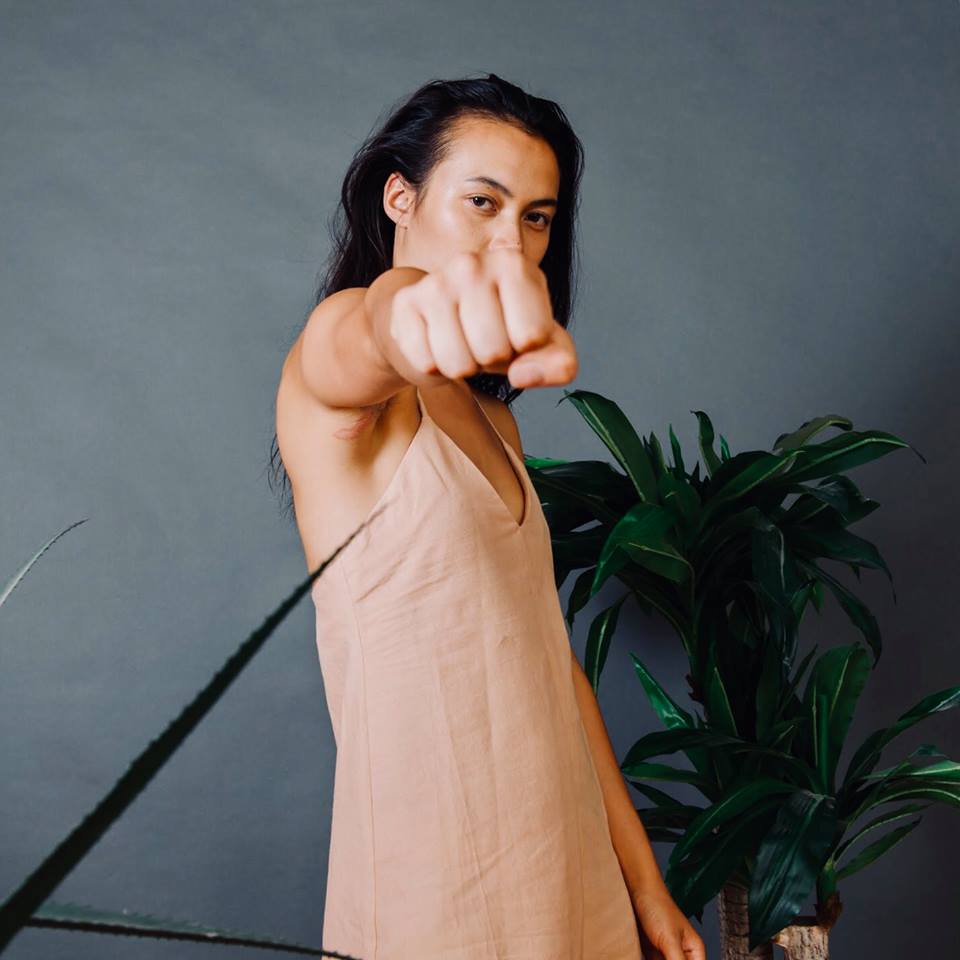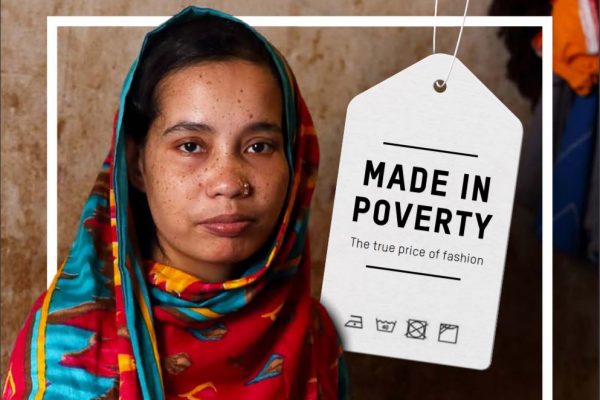If the connection between the clothes you choose to wear and your feminist ideals seems tenuous, you’re not alone.
We are constantly bombarded with conflicting messages about our consumer choices (to quinoa or not quinoa? Is soy milk actually destroying the Amazon?) but the link between what we wear and social justice should really be a no-brainer.
Fashion is an inescapably feminist issue.
Garment workers – women who are hidden from view – are a part of modern slavery, where they’re exploited for their labour. But shopping ethical and boycotting fast fashion is a great way to be a feminist ally and support the workers who are forgotten.

"Fashion is an inescapably feminist issue."
Switching to ethical brands like The Fabric Social not only takes money out of the hands of the bad guys, but it actively supports women producers working to build futures for themselves and for their communities.
Here are four ethical fashion facts to keep you feeling woke this International Women’s Day.
1. Fast fashion deliberately exploits the most disenfranchised
The garment industry as a whole finds the cheapest, most disenfranchised workers on earth and pushes them to the brink. The industry is the largest global employer of women – and these are mostly young women. Some studies estimate that 80-90% of garment workers are young, uneducated rural migrant women.
This demographic is not typically associated with awesome health and safety or labour rights – let alone things that are a given somewhere like Australia: weekends, superannuation, maternity leave. They miss out on a whole heap of rights because they are exploited to make our clothes.
2. Women at the bottom of the supply chain have it really tough, and they deserve our support
Factory workers in the garment industry typically work 12-16 hour days, 6 days a week, and earn about $60 AUD per month. This is about enough to get shelter, food and nothing else. They’re often denied bathroom breaks and are sometimes fired for taking two consecutive days off work. Despite already being right at the bottom of the supply chain, wages continue to be squeezed and unions continue to be targeted whenever vulnerable garment communities collectivise. Child labour is reportedly on the up and the industry is becoming masterful at slithering across borders when the regulation tape gets too tight for its liking. This means they’re able to continue their exploitative practices while avoiding obstruction.

3. The money making part of fashion is a total boy’s club
Fashion and design schools are filled with women. Women’s clothing sales account for almost double that of men’s worldwide. The most talked about shows of the leading four Fashion Weeks are almost exclusively women’s clothing, generating huge revenues for host cities. Nonetheless, there are a grand total of zero Fortune 500 apparel companies run by women. It is unsurprising then, that the women at the bottom are treated so poorly when there is no female representation at the top of the supply chain.
4. injustice anywhere is a threat to justice everywhere
You simply can’t parade around chanting Harvey Weinstein and #MeToo while wearing a $5 t-shirt from a fast fashion chain that’s paid its garment workers in pennies. While we all love a bargain, we really should love the sisterhood more. And this starts with buying fashion that’s made fairly, by workers who are treated and paid right. It takes fewer than thirty seconds to read a label, and less than a minute to whip out your phone and google the ethical cred of the store you’re visiting.
You’re just one person, but the connection between the choices you make and the lives of women in production houses is very real. Celebrate International Women’s Day this year by pledging to be an ally to garment workers by shopping a little smarter, and with a little more heart.
Photography: Jess Brohier Model: @athathum


